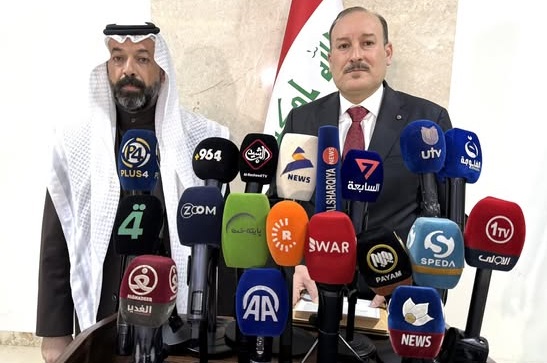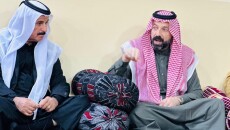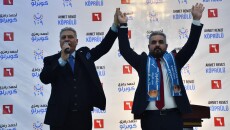Two Arab members of the Kirkuk provincial council, announced their withdrawal from the coalition that formed the Kirkuk administration. They emphasized that they will continue to work within the framework of the Kirkuk provincial council.
During a press conference on Wednesday, May 21, Raad Salih and Zahir Anwar Aasi cited the "failure to implement" the provisions of the government formation agreement as the reason for their withdrawal. Salih expressed disappointment, stating, "Nine months have passed since the formation of the Kirkuk local government, but we have not seen any seriousness in implementing the agreement, especially regarding the missing."
"We are not seeking positions or privileges. We participated in the formation of the Kirkuk local government to defend the rights of our people. Therefore, we have decided to withdraw from the coalition formed the Kirkuk government," Salih added.
Their withdrawal coincides with the preparations of political parties in Iraq and Kirkuk for the sixth round of parliamentary elections scheduled for November 11. However, Salih emphasized that they will not participate in any election process unless a comprehensive local political organization for Arabs in Kirkuk is established to work for their interests, regardless of electoral opinions, regions, tribes, and religions.
The two Arab members, Raad Saleh from the Taqadum list led by Mohammed Halbusi and Zahir Anwar Aasi from the Arab coalition led by Mazhar Anwar Aasi, called for the boycott front to resume work in the provincial council.
With the withdrawal of the two Arab members from the agreement to form the Kirkuk local government, only one Arab member remains in the Kirkuk provincial council out of six members, Mohammed Hafez, the speaker of the provincial council.
The Kirkuk local government was formed on August 10, 2024, at the Rashid Hotel in Baghdad, with the participation of five members of the Patriotic Union of Kurdistan PUK, two leadership list members, the only Arab member, and the last Christian member, totaling nine out of 16 members.
However, seven other members, including the Arab Coalition in Kirkuk (three members), the Kurdistan Democratic Party (KDP) (two members), and the Iraqi Turkmen Front ITF (two members), did not participate in the agreement to form the Kirkuk local government and remained in opposition.
The northern, multiethnic, oil-rich province of Kirkuk home to over 1.77 million people is a disputed area between the two federal governments of Iraq and the Kurdistan Region, and the decision of its fate is within the framework of Article 140 of the constitution through three stages of normalization, census, and referendum.
It is unclear whether the two members will withdraw from all positions in the Kirkuk local government, including the deputy governor, directors of provincial office departments, governors, district mayors, and general directors.
They did not mention the names of their parties at the press conference, only their own names in the statement.
They also urged Arab voters to visit the voter registration centers and actively participate in the upcoming elections, voting for parties that serve their interests to demonstrate the true size of the Arab community to local, regional, and international public opinion.
The highest legislative and supervisory authority within the boundaries of the local administration shall be with the Kirkuk Provincial Council, which has the right to issue internal laws and instructions for managing the affairs of the province, formulate the general policy, discuss and approve the local budget and project plans.
Earlier, during the Ba'ath regime, most of the main joints of administration and governance in Kirkuk were in the hands of the Arab community, without any elections, and after 2003, the Kurds were at the top of the executive power. They appointed the governor until 2017, and then the governor's post fell back to the Arabs up to 2024, until a Kurdish candidate from the PUK faction took the post again.
The first governor of Kirkuk after the 2005 provincial council elections was Abdulrahman Mustafa from the Kurdish community. In 2011, Najmaddin Karim was elected governor from the Kurdish/PUK by the same council yet after six years, by a decision of the Iraqi parliament, he wasremoved him from office.
In 2003, 32 % of the administrative posts in Kirkuk have been allocated to Kurds, Arabs, and Turkmens, and 4% to Christians, based on a project by former Iraqi President and the late PUK secretary Jalal Talabani. The project was agreed upon in July 2009 by the Kirkuk provincial council, although it did not extend to the lower posts.







